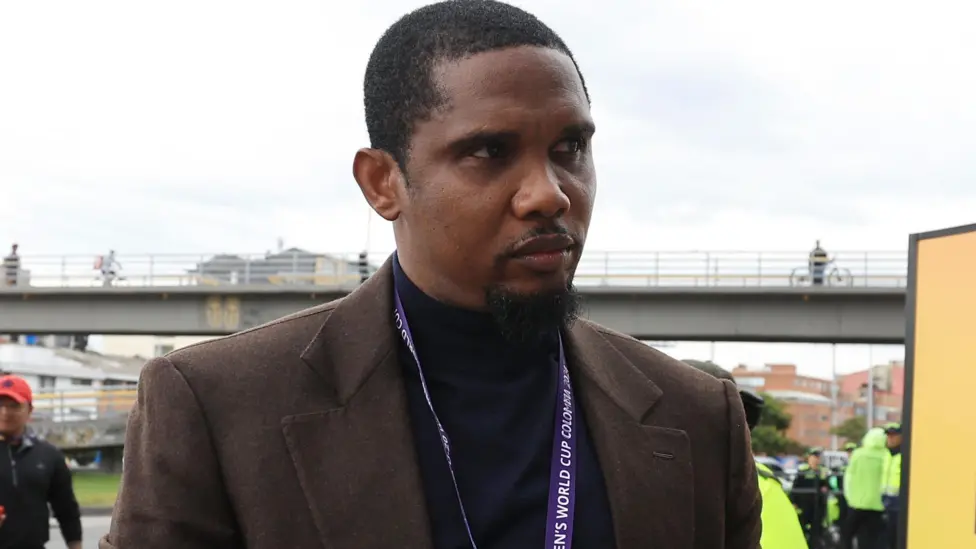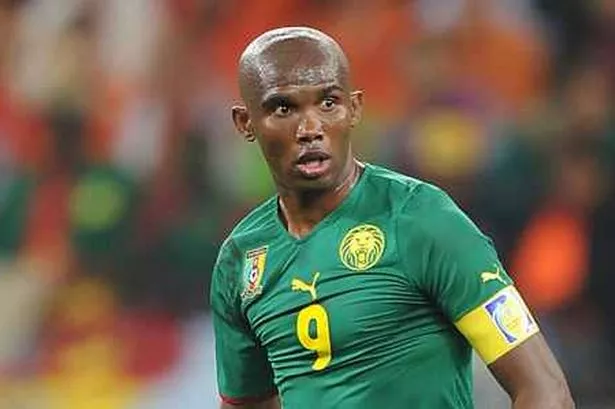Samuel Eto’o, president of the Cameroonian Football Federation (Fecafoot), has been handed a six-month ban from attending any international matches involving Cameroon, FIFA announced on Monday.

The former Barcelona and Chelsea striker, who now heads Cameroon’s football governing body, was sanctioned by FIFA’s disciplinary panel for breaches related to offensive behavior and violations of fair play principles during the Under-20 Women’s World Cup match between Cameroon and Brazil on September 11 in Bogota, Colombia.
“This ban covers all football matches involving Cameroonian national teams, across all categories and age groups,” said a FIFA spokesperson, who requested anonymity due to the sensitive nature of the case. The sanction takes effect immediately.
The incident occurred during Cameroon’s 3-1 extra-time loss to Brazil in the last-16 round. FIFA’s statement cited violations of articles in its disciplinary code pertaining to misconduct of players and officials.
This ban adds to Eto’o’s recent troubles. In July, the Confederation of African Football (CAF) fined him $200,000 for an ethics breach related to his ambassadorial role with betting company 1XBET. CAF found that Eto’o had “seriously violated the principles of ethics, integrity and sportsmanship.”

Eto’o’s tenure as Fecafoot president, which began in 2021, has been marked by controversy. Last year, a group representing amateur clubs in Cameroon called for his resignation, citing “grave irregularities” in the federation’s operations. One former international teammate even described Eto’o as a “dictator” due to his management style.
The ban comes at a crucial time for Cameroon’s national team, which faces Kenya in a qualification double-header for the 2025 Africa Cup of Nations in October. Eto’o had chaired a meeting in Douala earlier on Monday to discuss preparations for the upcoming matches.
As news of the ban spreads, questions arise about its impact on Cameroon’s football governance and the team’s performance in upcoming tournaments. The situation also highlights the challenges facing former star players transitioning into administrative roles in African football.
Fecafoot has not yet responded to requests for comment on the FIFA ban or its implications for the federation’s leadership.


